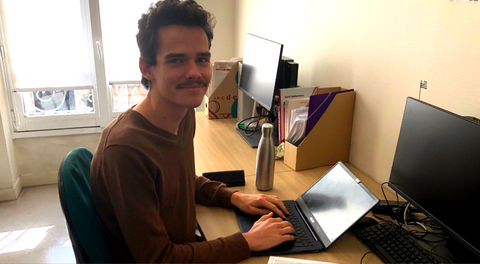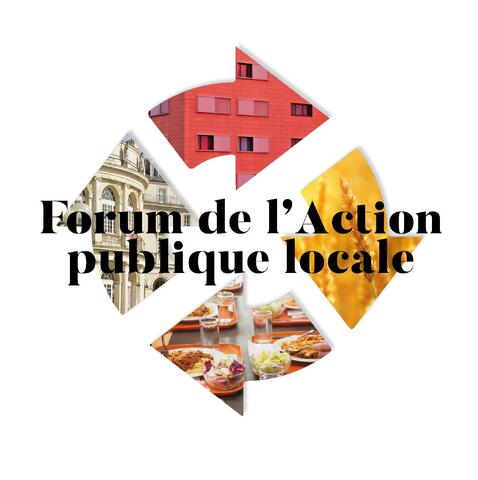Deep transitions are underway in public policymaking at the local level, driven by multiple factors, including changes in societal expectations, strategies for adaptation and resilience, a need for efficiency, shifts in decentralization processes and the multiplication of stakeholders in complex local governance structures. Local decision-makers need multi-skilled executives who can lead public policies.

The GMT Master’s program prepares “universal experts” in regional public policy who go on to work at local authorities, regional offices of the French government, consulting firms and non-profits.
Students follow an intense, high-level curriculum with a dual focus: political science and the sociology of public policymaking combined with methodology for expertise and investigative techniques. They acquire an in-depth understanding of local policies and the design of appraisal, assessment and foresight studies. They also develop management, teamwork and change leadership skills and discover a wide range of public policy sectors, including urban affairs, culture, health, welfare and the environment. The program offers university-level excellence in partnership with the Regions and Changing Trends in Public Policy (TMAP) Chair, combined with a variety of professional events and activities.
The GMT program places special importance on internships. Students receive support throughout the apprenticeship to ensure a successful start to their career.
In partnership with the École Normale Supérieure de Rennes and Université de Rennes 1.
Participation in the work of the Regions and Changing Trends in Public Policy Chair.
The GMT program is co-operated with the Master in Research and Expertise in Political Dynamics in Societies (Analysis of public issues) offered at Sciences Po. Certain lectures are attended by both program streams.
The program consists of four introductory modules (UE):
- UE1 – Sociology, public policy and the public arena: Sociology of public policy, Power and governance in Europe, Joint policy and transitions, Constructs of environmental issues (optional)
- UE2 – Local public policies and regional governance frameworks:
- UE2A: Local public policy frameworks: regional social and political constructs, Regional marketing and planning, Leading local public policies, Local economics and regional development, General overview of how local authorities operate
- UE2B: Local public policies, challenges and implementation: Urban affairs, Culture, health, welfare and environmental transition policies, Professional conferences
- UE3 – Methodology for expertise and applying knowledge: participation in TMAP Chair research, methodologies used for expertise and public policy assessments, foresight studies, data production and analysis at consulting firms, statistical methods, mapping/GIS.
- UE4 – Career development support: career planning, introduction to management, innovation and change management
Students take part in conferences, seminars, workshops and other activities of the Regions and Changing Trends in Public Policy Chair at Sciences Po Rennes. They work with active professionals and specialized researchers on subjects related to public policy and regional governance.
Future executives pursue careers at local authorities, national government agencies and other public stakeholders where public policy is traditionally administered, as well as their institutional and non-profit partners or consulting and operational service providers.
The program prepares graduates for a variety of roles: research officer or director, project officer, consultant, development or PR officer at local public policy partners/providers, specialist in regional appraisal or public policy and foresight evaluation in a broad range of public policy areas. Executives are ready to take on managerial responsibilities in public policy leadership and local service management positions.
Career opportunities include positions at research, evaluation and foresight departments of national or regional government agencies, local authorities, semi-public companies, donors, federations, private research firms involved in regional public policy programs and local non-profits. The broad range of skills acquired by students enables them to also apply for positions more focused on project organization, management and oversight, or public policy implementation.
A non-exhaustive list of companies and organizations that have welcomed GMT program students since 2016: Région Bretagne, Département d’Ille-et-Vilaine, Rennes Métropole, Nantes Métropole, Brest Métropole, Ville de Rennes, Ville de Laval, Redon Agglomération, Ville d’Acigné, Ville de Vannes, Agence Phare, Cabinet Geste, Acadie, Sémaphores, Pluricité, APRAS, Groupe SOS Solidarité, EDF, Agence Locale de l’énergie et du climat du Pays de Rennes, SDIS 35, Vélo et Territoires, CD 33, CD 78, CERUR, Collectivité européenne d'Alsace, Association Aurore, 4Bis, P&T, Agrocampus, CD49, ODENORE, Ville de Rouen.
Because the Master is doubly geared to research in the social sciences as well as practical research, graduates of the program can also pursue a PhD under the supervision of researchers from the Regions and Changing Trends in Public Policy Chair at Sciences Po Rennes and the Arènes Laboratory (UMR 6051) with funding from the CIFRE internship-based dissertation scheme, which conserves the link between research and public policymaking.
First-year Master’s students (M1) enrolled at Sciences Po Rennes can apply to the program as follows:
- Third-year political science students submit an application and attend an interview (and obtain a Sciences Po political science degree + a national Master’s degree).
- Fourth-year students from other schools sit a M1 entrance exam (and obtain a Sciences Po political science degree + a national Master’s degree).
Direct enrollment in in year two (M2) of the program is also possible, based on an application and interview:
- First-time second-year Master’s students must hold a first-year Master’s degree (M1) or equivalent (240 ECTS) in a humanities or social sciences related field such as political science, law, economic and social administration (AES), sociology, history, geography or urban planning. Other accepted degrees include engineering or medicine (examples exist of successful applicants from these disciplines).
- Continuing education: applicants must have completed a first-year Master’s degree (M1). Applicants without a first-year Master’s degree can apply for recognition of previous learning.
Second-year Master’s admission
Click hereto register and download the application file
+ The completed application file and supporting documents should be emailed as a single PDF to the address indicated on page 2 of the file.
If your application is accepted, you may be contacted for an interview with the academic program director(s).







